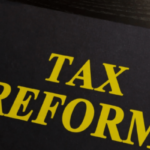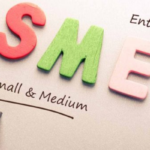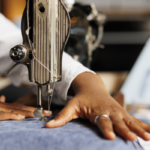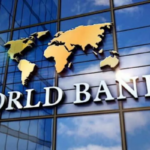The launch of a $40 billion Africa Energy Fund at the Mission 300 Africa Energy Summit in Dar es Salaam is set to drive significant investment into energy access across the continent.
The initiative aims to connect 300 million people to cleaner, more reliable energy by 2030. As African Energy Week (AEW) 2025: Invest in African Energies approaches, clean cooking solutions will feature prominently in discussions on sustainable energy strategies.
Read also: Absa CIB powers East Africa’s real estate sector as lead sponsor of EAPI Summit 2025
A growing focus on clean cooking solutions
Clean cooking remains one of Africa’s most urgent energy challenges. Over 900 million people across the continent still depend on traditional biomass such as wood and charcoal for cooking. This reliance leads to health, environmental and economic problems, including over 600,000 premature deaths annually due to household air pollution. Deforestation and carbon emissions from traditional fuels also continue to rise.
Despite the focus on electrification, clean cooking has received less investment attention. However, the launch of the Fund signals renewed commitment to tackling this gap. The World Bank has pledged $22 billion, the African Development Bank has committed $18.2 billion, while the Islamic Development Bank and the OPEC Fund have pledged $2.65 billion and $1 billion respectively. These contributions demonstrate strong international support for Africa’s energy transition.
Read also: Absa CIB powers East Africa’s real estate sector as lead sponsor of EAPI Summit 2025
National efforts and policy advances
Several African countries are taking steps to expand access to clean cooking. Kenya aims to achieve universal access by 2028 through expanding LPG use, promoting electric cooking and supporting bioethanol alternatives. Subsidies for LPG and investments in infrastructure have significantly increased adoption rates in the country.
Tanzania has integrated clean cooking solutions into its national electrification plans under its National Clean Cooking Strategy. The country is working towards expanding access alongside broader energy goals. Ghana has adopted a multi-pronged strategy, promoting affordable LPG, efficient biomass stoves, public awareness campaigns, and local manufacturing of clean cooking technologies.
These examples highlight approaches that other African nations may consider replicating as they advance their energy transition efforts.
Read also: Verdant Capital backs LOLC Africa’s expansion with new USD 4.5m investment
Energy access and economic growth
Reliable energy access supports economic growth by powering industries, businesses and households. Expanding clean cooking solutions also brings wider benefits, including lower health costs, increased productivity and improved gender equality.
AEW 2025 will provide a platform for stakeholders to explore opportunities to invest in clean cooking projects. Discussions will include mobilising financing through public-private partnerships and carbon credit mechanisms. Stakeholders will also consider how to integrate clean cooking into national electrification strategies and share best practices from countries leading the way.
Efforts to scale investment in off-grid solutions and innovative financing for clean cooking technologies will also form a critical part of the discussions.
Read also: OPEC Fund approves over US$ 600m in new financing for development projects
A pivotal moment for Africa’s energy transition
The launch of the Africa Energy Fund marks a turning point in Africa’s journey towards universal energy access. Achieving the goal of connecting 300 million people requires a combination of large-scale electrification, off-grid solutions and immediate interventions in clean cooking.
AEW 2025 presents a major opportunity for governments, investors and businesses to align strategies, mobilise resources and drive progress. Clean cooking solutions must be at the centre of this effort if the commitment to connecting millions to cleaner energy is to be achieved.










